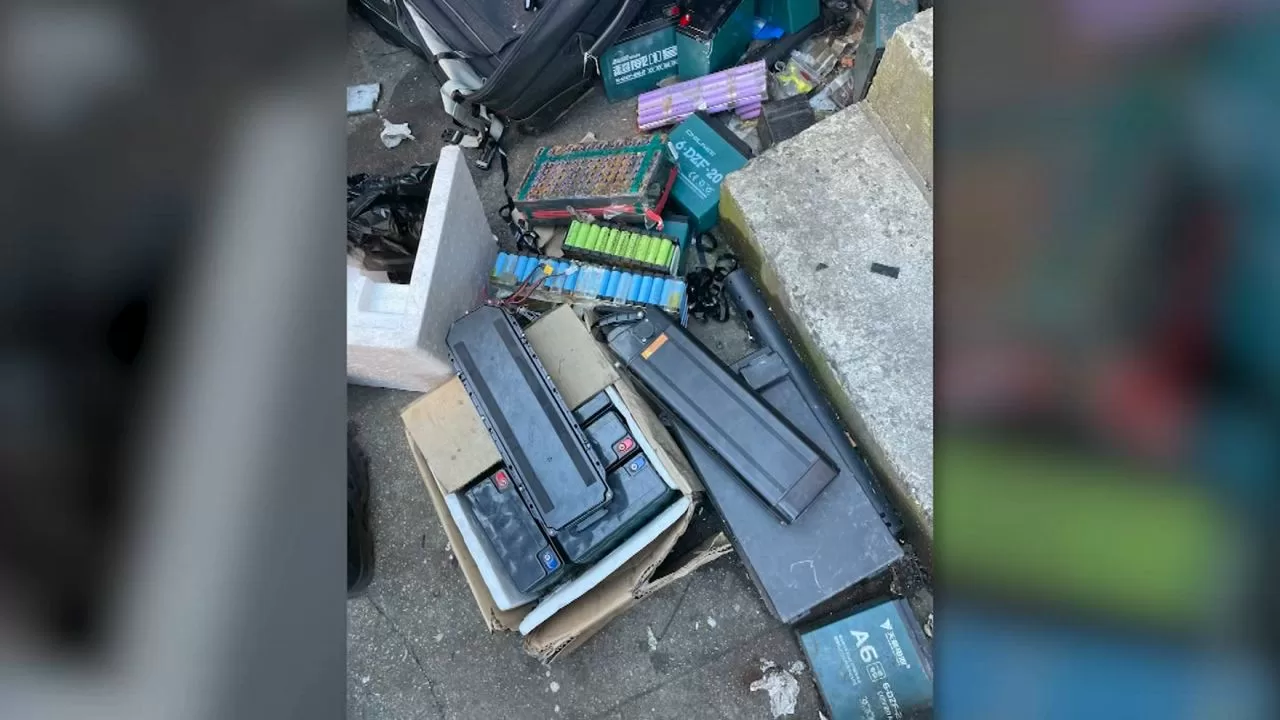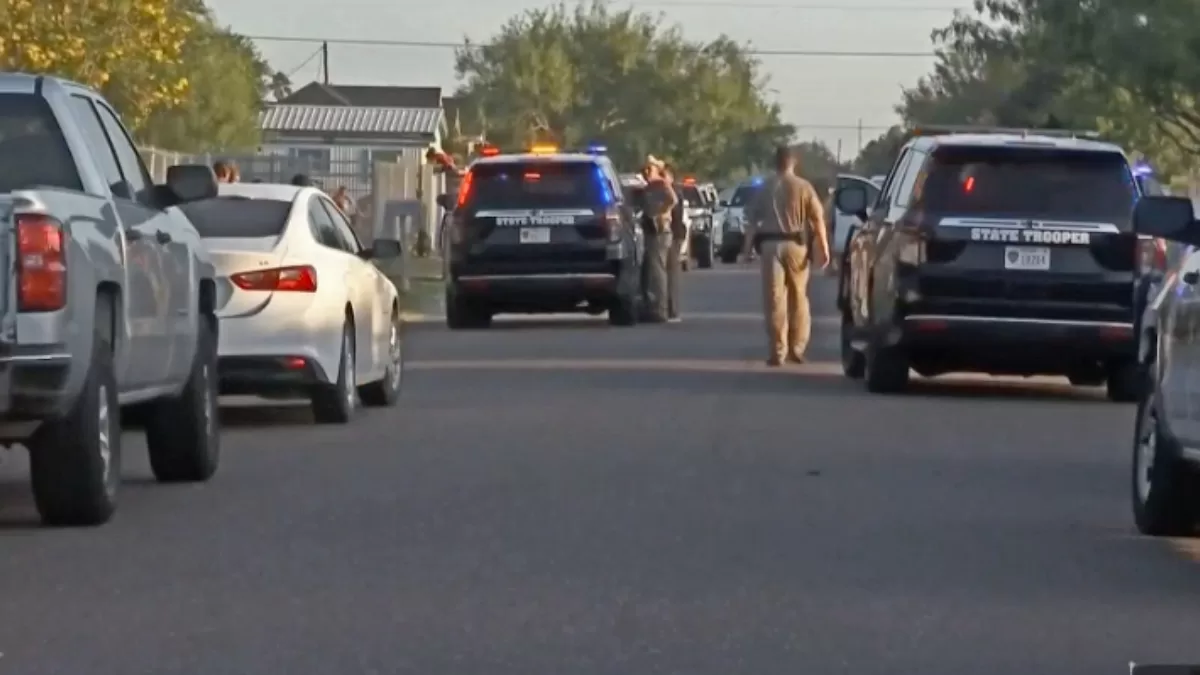Francisco Sagasti (Lima, 78 years old) was president of Peru for eight months and ten days. Congress appointed him in November 2020 as the successor to Martin Vizcarra, expelled from power for “moral incapacity”, to lead the country until the next electoral process, in which Pedro Castillo was elected. A former manager of the World Bank and with decades of experience in public policy, Sagasti was chosen precisely because of his career away from the front line. Together with Valentín Paniagua, he sits at the table of the only two Peruvian presidents in this century who do not bear charges of corruption. His management capacity is also recognized. He receives EL PAÍS at his house in Lima. Just published Governing in times of crisis. Politics and ideas in the Transition and Emergency Government, Peru 2020-2021 (Planet), a book where he analyzes his time in power.
In recent months, Sagasti has returned to sitting at the piano and is trying to pick up his camera again and capture landscapes, even if it is impossible for him to walk the streets again without going unnoticed. He also prepares the next book of his. In October he will be 79 years old, but he still does not think about writing his memoirs. A member of the Purple Party, he continues to do politics, while receiving criticism for not being tougher with the government of Dina Boluarte.
Ask. That you are a free ex-president is something that draws attention in Peru.
Answer. Its normal. The other things are an aberration.
Q. An aberration that has been repeated very often.
Join EL PAÍS to follow all the news and read without limits.
subscribe
R. That does not mean that governing honestly, with integrity, is a miracle. Not even in this country it is. I believe that we have had presidents like (Valentín) Panigua, (Fernando) Belaúnde, José Luis Bustamante and Rivero who have given the stature.
Q.How do you explain that the only two politicians who left with greater approval, you and Paniagua, were transitional presidents that were not elected by the people?
R. It has to do with how the system works and the political leadership. A series of distortions are created in a campaign, because in many cases those who support expect something in return. Neither Paniagua nor I arrived by that route and, therefore, we had no debts to settle.
Q. In his book he tells that he had five meetings with former President Pedro Castillo when he was already in government and they talked about leadership. Was Castillo lacking in that sense?
R. It was an effort trying to get him some ideas about how to exercise power. Apparently, there wasn’t enough receptiveness on his part or perhaps understanding of what he wanted to do. We made one last try and I thought I’d leave you some notes on six sheets. Unfortunately, that meeting was delayed and we didn’t have more than three-quarters of an hour. It was very brief and there I realized that more could not be done.
Q. Could the early end of the Castillo government be seen at that time?
R. I didn’t expect it to come to this situation. We are in a country with so much mistrust that if one does not grant a minimum of trust to the other it is practically impossible to establish a sensible and lasting relationship. I never expected that combination of inappropriate designations, unqualified people and people involved in acts of corruption. Long before his incomprehensible coup, in March and April 2021, I published two articles indicating that the most convenient way out was early elections and a new transitional government. It had been clear to me for a long time that I was not the right person. What surprised me was their total incompetence and a failed Coup that had neither head nor tail.
Q. Should the early elections be the way out of the current crisis?
R. I think so, let’s remember that the advancement of elections was already raised in Congress, and the President of the Republic also raised it. We are not talking about an idea that comes from the air, it has been put on the table by various political actors.
Q. You affirm in your book that you understood the nature of the transitional government.
R. Of course. I was very clearly aware that it was a temporary government, that we were in a tremendous health crisis due to the pandemic, that we did not have vaccines or enough oxygen, that we had not organized a reasonable process to contain the spread of the virus. In addition to the fact that we were months away from an extremely polarized electoral process, in the midst of an economic crisis with the worst drop in GDP in the region.
Q. Why did President Boluarte not attend to the transitory nature of her Government?
R. As former President of the Republic, I do not issue value judgments about who is currently holding office.
Q. How do you find us as a country these National Holidays?
R. Very hurt, with many questions and questions, and with a certain degree of skepticism about the behavior of Congress, the Executive and some authorities in other branches of the State. You arrive in a slightly low spirits.
Q. More disunited than usual?
R. I don’t think we are more disunited, but the political fragmentation is seen more clearly.
Q. Have you ever wondered what your government would have been like if it had lasted five years and not eight months?
R. Frankly, no. During the exercise of the Government there was no time, it had to be resolved. Now I have been more dedicated to seeing what we did and what lessons one can draw for the future. But you have to be very clear: if the house is on fire you are not going to think about what color you want the hose to put out the fire. What would have been different in a longer period? Obviously much more could be done, but at the same time the resistance would have been worse.
Q. Have you considered joining the latest protests?
R. Tell me in which country in the world has a former president been seen in a march for a variety of issues that do not generate consensus. I can contribute more in other spaces than by taking to the streets. My role is in other places to contribute to the same things: early elections, that there is no impunity in the case of the people who died in the demonstrations and that there is a political renewal.
Q. His critics consider that lukewarm on his part.
R. It is radical moderation. I refuse to take one extreme or the other. If they consider that it is lukewarm to speak clearly, there they are. I respect those who go out to march, call for a strike, go on hunger strike, those who tweet. But I refuse that there is only one way to express dissatisfaction. Stop Please.
Q. So you will no longer apply for any public office in the future?
R. I am not considering it. The issue now is to see how this situation is resolved, how to get out of the political impasse.
subscribe here to the EL PAÍS America newsletter and receive all the key information on current affairs in the region.






